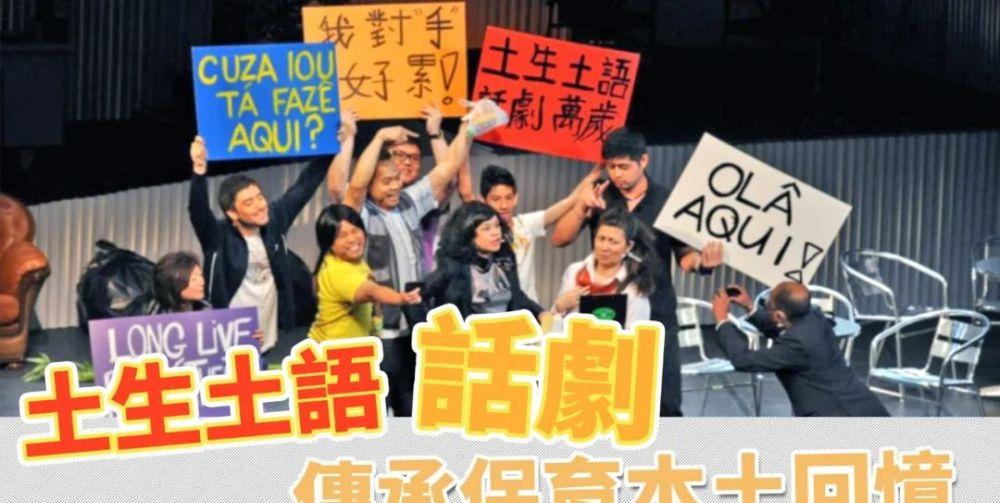The soul of the Vernacular drama is a comedy that satirizes the shortcomings of the times in a humorous, playful and angry way, and its soul lies in the Native Language. Through the creation of dramas, the transformation of this original oral language into a writing language not only reproduces a language that has disappeared, but also presents the social perspective and thinking connotation of The Macanese people, which is an indispensable part of Macao's multiculturalism.
Development has gone through different twists and turns

Fei Wenji, screenwriter and director of Macau Indigenous Language Repertory Theatre, has been engaged in related work for more than 30 years. By chance, after following the writer's father Fei Liqi to a screenwriting conference, he created his first personal work "See the President" because of his many ideas, and starred in 1993 when the then President of Portugal, Suarez, visited Australia, and since then the creative road has been "out of control", and has written more than 30 dramas so far.
Fei Wenji continued that the development of Indigenous Drama has experienced different twists and turns, it is said that in the 1920s there have been Indigenous Indigenous Dramas performed at the Gangding Theatre, but because the Indigenous Language is different from Portuguese, it is a family-style oral language based on Portuguese, mixed with Malay, Cantonese, English and Spanish, which can be described as the real "Indigenous Language", and there are not too many people who can speak indigenous language after social development, and even a new generation of Macanese people do not understand this language, on the other hand, few people are keen on stage performance. Becoming an actor has suspended the development of indigenous dramas.
Until 1993, Fei Wenji and a group of like-minded friends of the Indigenous ethnic group established a drama troupe, once again bringing the traditional art of Indigenous drama to the stage, and slowly developed into the highlight of every year's Macao Arts Festival. Native language drama is very close to social current affairs and trendy things, the script will combine the humor in Portuguese culture and Cantonese culture, in the form of humorous comedy to satirize the shortcomings of the times; the essence of which lies in the indigenous language, because just as Chinese drama will be interpreted in "vernacular", the more authentic the language, the better the effect, always can cause the audience to laugh or reflect.
Chinese and Western cultures work together
The inheritance and preservation of the language culture in the lost and preserved indigenous drama
With the development of the times, the current Indigenous Drama has not only added Chinese actors, but also will be accompanied by Chinese, Portuguese and English subtitles at the time of performance, which is convenient for the audience to watch. Fei Wenji revealed that in recent years, more and more Macao Chinese and Hong Kong audiences have purchased tickets to watch, and audiences of different races can understand the meaning of the play, laughing from time to time, which makes them very happy, and they are also deeply pleased that the promotion of indigenous languages has been effective.
Indigenous dramas, which reflect the co-production of Chinese and Western cultures in Macao, were included in Macao's "Intangible Cultural Heritage List" in 2017. Fei Wenji lamented that although the indigenous language is no longer used in daily life, it can be applied to drama performances, not only can it preserve and inherit a language that represents identity and culture, but also can become a collective memory of the indigenous ethnic group, which is very meaningful and will be committed to promoting the inheritance in the future.
Partial image source: Cultural Affairs Bureau
Read more: